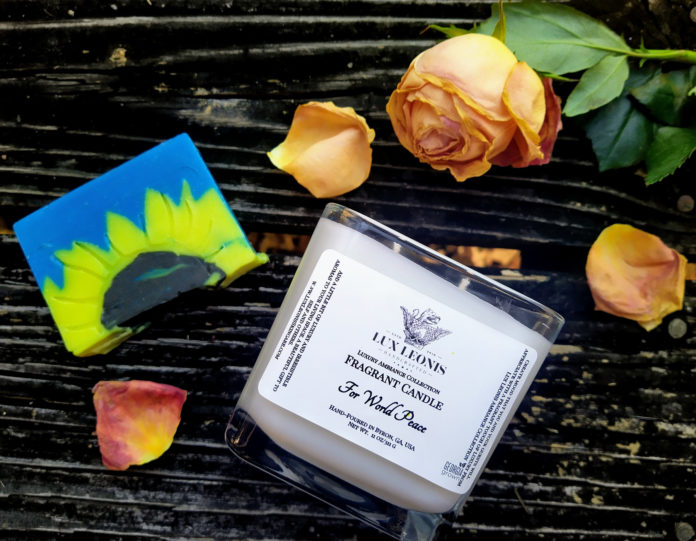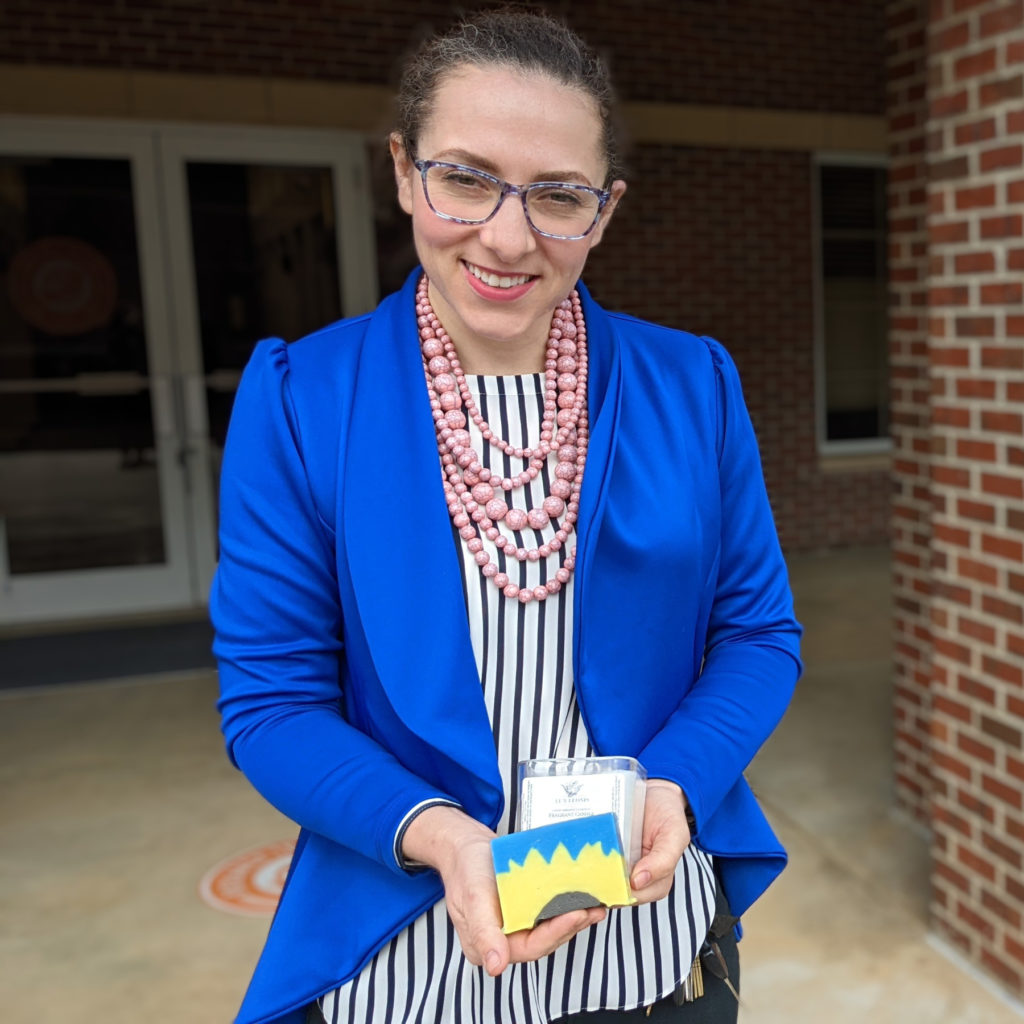
A Mercer University professor from Poland is raising money to help Ukrainian refugees fleeing to her native country as Russia attacks the former Soviet republic.
Dr. Ania Rynarzewska, assistant professor of sports marketing and analytics in the Stetson-Hatcher School of Business and owner of Lux Leonis Skin Care, is selling a special soap and candle to benefit refugees through the Polish Red Cross.
Dr. Rynarzewska, who came to the U.S. in 2005 to attend Florida State University as an undergraduate, said she initially felt helpless being so far away amid the recent attacks on Ukraine.
“Everybody helps there in Poland,” she said. “All my friends are driving to the border, picking up refugees and taking them to their homes. … And I’m just here, kind of watching from afar, and I feel like that’s not right. I feel like I have to do something.”

She launched the fundraiser Feb. 27 and sold 25 pounds of soap and more than 30 candles by mid-afternoon the following day. Some stores are interested in carrying the products as well, she said.
Dr. Rynarzewska crafts Lux Leonis products by hand, and this special soap and candle are no different.
The goat milk soap displays an image of a sunflower, Ukraine’s national flower, and is colored yellow and blue, the colors of the Ukrainian flag. The soap smells like a sunflower field with a touch of fresh air and citrus, as well as green stems and earthy soil.
The candle is scented with white tea and is called “For World Peace.”
The soap (available by pre-order only) sells for $8.50 and the candle for $20. At least 60% of the products’ proceeds will be donated to the Polish Red Cross. The remainder will be used to cover the cost of the ingredients.
Pitts-based Oliver Farm Artisan Oils has donated sunflower oil to use in the soap, and Dr. Rynarzewska is asking other suppliers to donate as well. She is donating her time to make the products, which are available online at luxleonisskincare.com.
The United Nations estimates more than 500,000 Ukrainians have fled to bordering countries, with Poland taking in over 280,000 refugees, according to a BBC news report on Feb. 28.
With global economies already depressed due to the COVID-19 pandemic, Dr. Rynarzewska said she worried about what would happen to the refugees.
“Somebody has to take them in. Somebody has to take care of them,” she said.
She chose to donate to the Polish Red Cross after reaching out to the organization and confirming what the money would be used for.
“They promised they would either give it to Ukrainian refugees in Poland who just crossed the border, or they will direct it to the people in Ukraine,” she said. “So, mothers, children, people in need are who we have to help.”









